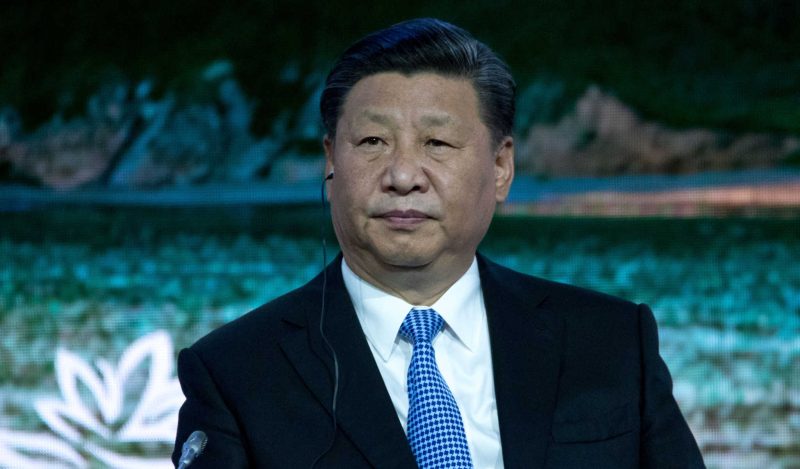Markets always and everywhere have their say. Much as political types imagine they can use force or the money of others to alter reality, market signals overpower their conceit. This truth was bullishly revealed yet again in Asia yesterday.
Over the weekend Xi Jinping secured for himself a third five-year term as general secretary of the Communist Party. Hong Kong’s Hang Seng Index promptly plunged 6 percent on Monday.
Why is this bullish? It is because it’s a loud reminder to China’s would-be leader for life that actual market signals pay homage to no one. Investors don’t trust Xi, and this truth was expressed in powerful fashion.
What don’t they trust? Readers can probably guess. Markets are a look into the future, and over the weekend it became official that Xi and those in his inner circle had consolidated power. Getting more specific, a report from the Wall Street Journal explained that Xi et al “have broken with the pro-market pragmatism of past decades to champion a more egalitarian society, greater state control over the economy and an increasingly muscular foreign policy.”
Markets must price probabilities, but most of all they must factor in possibilities. What’s possible is seemingly what has them spooked.
Really, how far in reverse will Xi take a country that made such remarkable strides in recent decades? Whereas the Chinese people were literally starving in the 1970s thanks to collectivism, by the 2020s potent symbols of capitalism like McDonald’s are seemingly everywhere one looks in the once desperate country. Which requires a pause.
While conservatives in the US have routinely described China and the Chinese as “communist,” actual market signals have for quite some time indicated something very different. Markets once again always have their say, and they’ve long mocked the popular and rather paranoid narrative that China is a communist country.
As evidenced by the ubiquity of Americana in a country that formerly personified the endless want that runs wholly counter to what the US symbolizes, China ceased being “communist” long ago. The previous truth doesn’t mean that the country came to embrace US-style freedom overnight, but it does ridicule the popular narrative about China as a communist country. We know this because the world’s most valuable businesses (that would be American businesses) would never develop such a notable presence in a county that suffocated commercial achievement.
It’s all a reminder that at least up until now, the Chinese were in an economic sense very free. None of this is to excuse the country’s errors on the matter of personal freedom, but it does exist as an inconvenient truth for those eager to create the perception of modern China as a creation of the state and its finance.
More realistically, governments have no resources. This truth is an article of faith in conservative circles stateside, but it’s largely gone out the window on the matter of China. Desperate to describe China’s progress up until now as something less than it was, conservatives resorted to laughable claims that the communists planned the country’s economic renaissance, and that the US must do the same.
As conservative scholar Nadia Schadlow disappointingly put it in a recent Wall Street Journal opinion piece, the US doesn’t measure up to China owing to its failure to mimic China’s “determination to separate key parts of its economy from ours while fostering dependencies that give Beijing coercive power.” Translated for those who need it, Schadlow and far too many other conservatives believe that state planning gave China global prominence, and it will continue to lift it vis-à-vis the US so long as political forces in the US don’t copy China with an eye on “recognizing that the U.S. needs to produce goods, tie trade policies to the well-being of the American people, and retain its competitive edge across key technologies.”
In other words, Schadlow imagines that China’s growth was born of industrial policy directed from the Commanding Heights, and that the US must do the same. How sad. How naïve.
That is so simply because governments are logically constrained by the known of commerce. By definition. We know this because actual commerce is regularly being pulled in all new directions by entrepreneurs feverishly taking us where we never imagined we needed to go. To then pretend as Schadlow does that China’s immense economic strides were planned by bureaucrats speaks to an impressive misunderstanding of how economies grow. Schadlow is basically calling for government types unable to see beyond the present to plan a future that will be defined by the present. Talk about a step backward.
Better yet, what Schadlow sadly supports is arguably what Xi is promising. While no sane person would imagine his goal is a blast to a brutal 1970s past, the sad fact that so many conservatives support industrial policy from Washington, DC signals just how realistic it might be that Xi will pursue something similar. The desire to centrally plan economic outcomes is popular among political types.
Which is why the Hang Seng correction was once again so bullish. It’s a reminder to politicians and pundits the world over that markets are much more powerful than politicians, and they’ll speak their mind in ways that shame those so foolish and so arrogant as to believe that prosperity can be planned. It’s a warning to Xi, but also a warning to conservatives who should know better, but who presently think that the answer to state planning is more state planning.
Published under a Creative Commons Attribution 4.0 International License
For reprints, please set the canonical link back to the original Brownstone Institute Article and Author.









